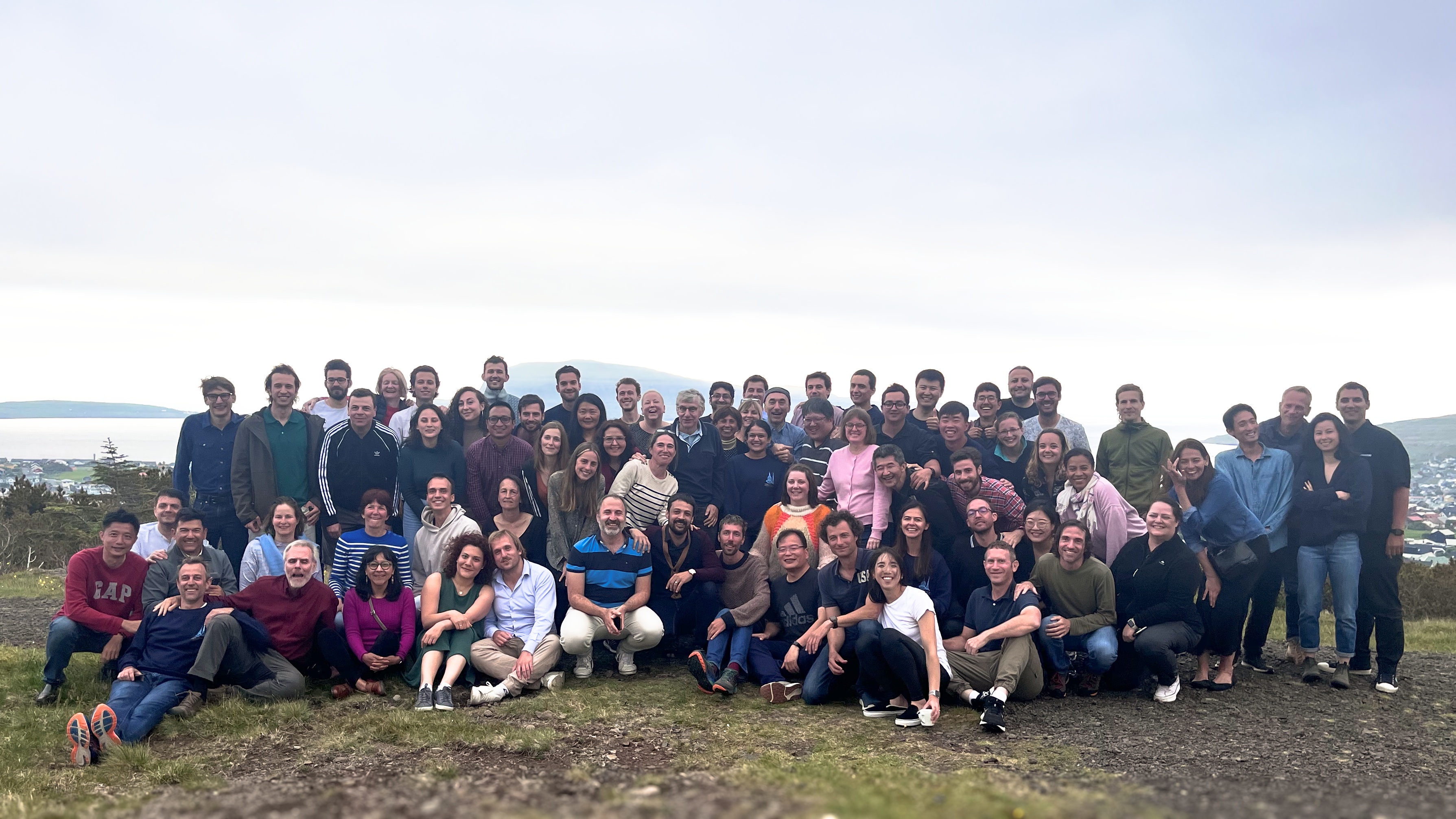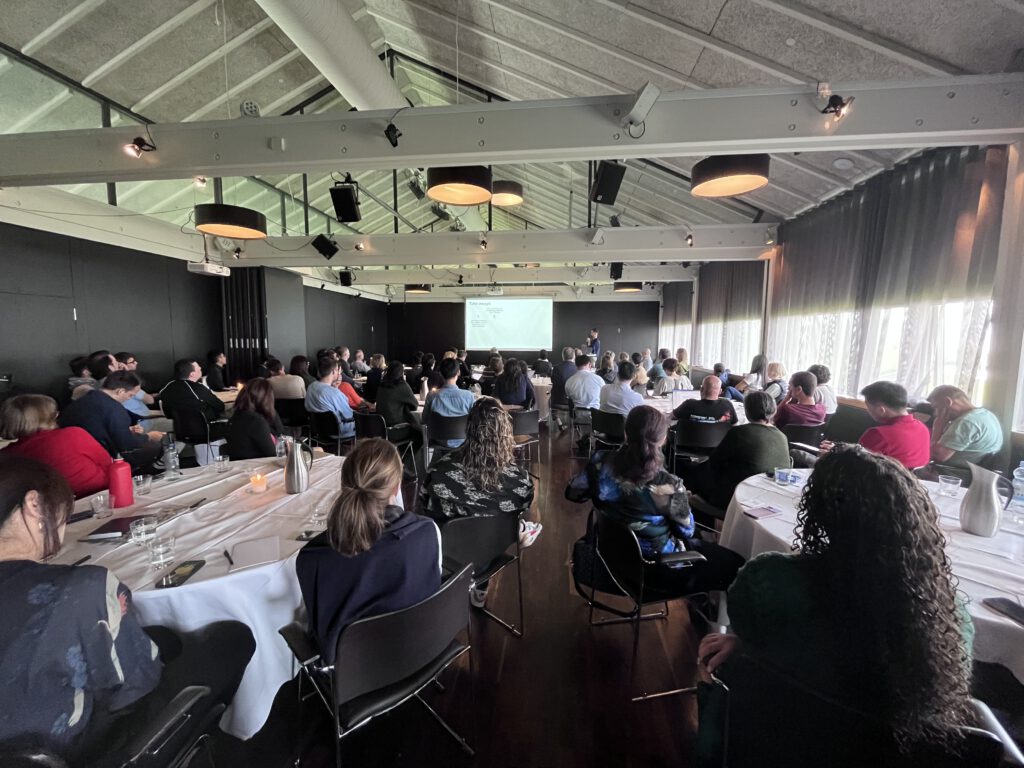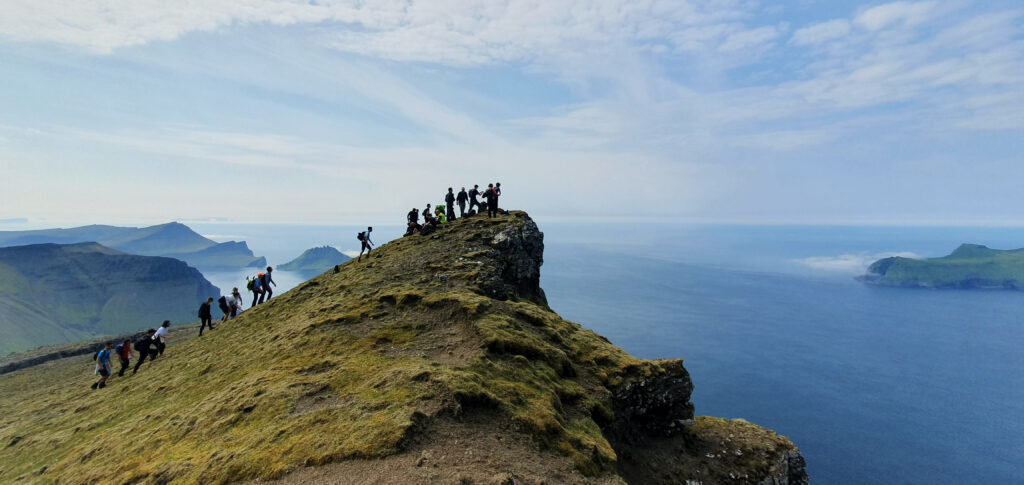Collaborative Efforts
Advancing research by cultivating community.
The lab’s impact on the field immunology is both expansive and profound, as it extends beyond the tangible accomplishments published in scientific journals. Our commitment to and enthusiasm for establishing collaborations, forging relationships, and building community across continents and scientific disciplines has and continues to propel our understanding of the human genetics and immunology. We firmly believe that communication and interaction are essential components of scientific research and that without collaboration, discoveries would not be possible.
This commitment to promoting collaboration is realized through the COVID Human Genetic Effort (CHGE), the Henry Kunkel Society (HKS), and the International Symposium on Inborn Errors of Immunity (IEI) in the Northern Atlantic. Through these activities, we are able to create opportunities for engaging and invigorating scientific discussions from which collaborations form, leading to groundbreaking discoveries and improved clinical therapies.

We believe in the power of human connections in the pursuit of understanding the human genetic and immunological determinants of infectious diseases.

Ongoing Programs
Henry Kunkel Society Meeting
Henry Kunkel Society Meeting
The Henry Kunkel Society was formed in year 1990 to honor the memory and celebrate the scientific life of Henry Kunkel, using Henry’s scientific endeavor as a model for future generations of scientists interested in the biology of human physiology and disease. Henry’s research was based on observations of human disease, sometimes single patients, seen as experiments of Nature. He was at the forefront of this unique discipline for decades and made groundbreaking biological and medical discoveries related to basic and clinical immunology.
The 31st Annual Henry Kunkel Society meeting will be held at the Rockefeller University in New York from April 11-13, 2024. The theme is “The thymus: from biology to medicine and back” and Christopher C. Goodnow, PhD, of Garvan Institute of Medical Research & UNSW Sydney will deliver the Annual Kunkel Memorial Lecture. The complete list of speakers is available, and registration is now open on the HKS website.
International Symposium on Inborn Errors of Immunity (IEI) in the Northern Atlantic
International Symposium on Inborn Errors of Immunity (IEI) in the Northern Atlantic
The goal of this symposium is to share knowledge and foster international collaborations among emerging talent in the field of Inborn Errors of Immunity (IEI), including current and former trainees of the lab, as well as international Keynote speakers. Topics covered include major areas within IEI, ranging from classic disorders identified in the 1950s to recently discovered disorders affecting various parts of the body, including the brain and the lungs. The meeting aims to increase knowledge among international young leaders in the field, provide networking opportunities for new collaborations, and share cutting-edge research to benefit patients with IEI and their families. The meeting also provides ample time for social interactions, particularly during hikes of varying difficulties, adapted to all attendees.

Past locations:
- 2023 – Faroe Islands
- 2016 – Iceland
COVID Human Genetic Effort
COVID Human Genetic Effort
Dr. Casanova, alongside longtime colleague, Helen Su (NIAID), established the COVID Human Genetic Effort (CHGE), an international consortium, at the start of the COVID-19 pandemic to discover the human genetic and immunological bases of the various clinical forms of SARS-CoV-2 infection.
The CHGE discovered that rare genetic defects can cause life-threatening COVID-19 pneumonia. These genetic defects disrupt the production of or response to type I interferons, a set of proteins that serve as an alarm system when the body is attacked by viruses, including SARS-CoV-2. Without functional type I interferons, patients are likely to develop hypoxemic COVID-19 pneumonia. The consortium also found that specific autoantibodies can block the function of type I interferons. These autoantibodies are rare in children and young adults, yet more common in elderly people. These autoantibodies can be detected in more than 6% of healthy people over 80 years of age, which makes elderly people more likely to develop life-threatening COVID-19 pneumonia. Overall, the CHGE has discovered genetic defects and autoantibodies that together account for 15-20% of life-threatening COVID-19 pneumonia of all ages. Finally, the CHGE discovered that inborn errors of the OAS-RNASEL pathway underlie multisystem inflammatory syndrome of childhood (MIS-C) in about 1% of cases.
COVIFERON
COVIFERON
HGID heads of lab, Drs. Jean-Laurent Casanova and Laurent Abel coordinated the “COVIFERON” in collaboration with partners in both the private sector and academia. This project aims to better understand the genetic and immunological basis of the different clinical forms of COVID-19, to develop and distribute tests to assess the risk of developing a severe form, and to propose new preventive and therapeutic approaches. The project encompasses four foundational objectives.
- To decipher the genetic and immunological basis of the different clinical forms of COVID-19
- To develop, in partnership with bioMérieux, ready-to-use diagnostic tests for the accurate and large-scale detection of autoantibodies against type I IFNs, which could allow the rapid assessment of the risk of severe disease in subjects infected with SARS-CoV-2, or even before infection.
- To promote the use of these tests in the context of transfusion.
- To propose new preventive and therapeutic approaches.
UNDINE
UNDINE
The human genetic and immunological determinants of the clinical manifestations of SARS-CoV-2 infection: Towards personalized medicine.
A European consortium led by Aarhus University (Aarhus, Denmark) coordinates a number of multidisciplinary and translational studies, which are closely aligned with the global COVID Human Genetic Effort. We rely on this strong and synergistic combination of resources, including unique patient cohorts from 11 EU countries, state-of-the art human genetic, immunological, and virological expertise and technologies. The HGID laboratory coordinates the French partners within this consortium.
The UNDINE project follows a “bedside to bench” and “bench to bedside” approach. The aim of the project is to decipher the human genetic and immunological basis of the various SARS-CoV-2 disease manifestations and to gain broad knowledge on SARS-CoV-2 pathogenesis in order to identify individuals at increased risk of critical COVID-19, post-infectious immunological complications, and vaccine failure. The knowledge gained will inform the development of diagnostic tests and novel preventive and therapeutic approaches.
